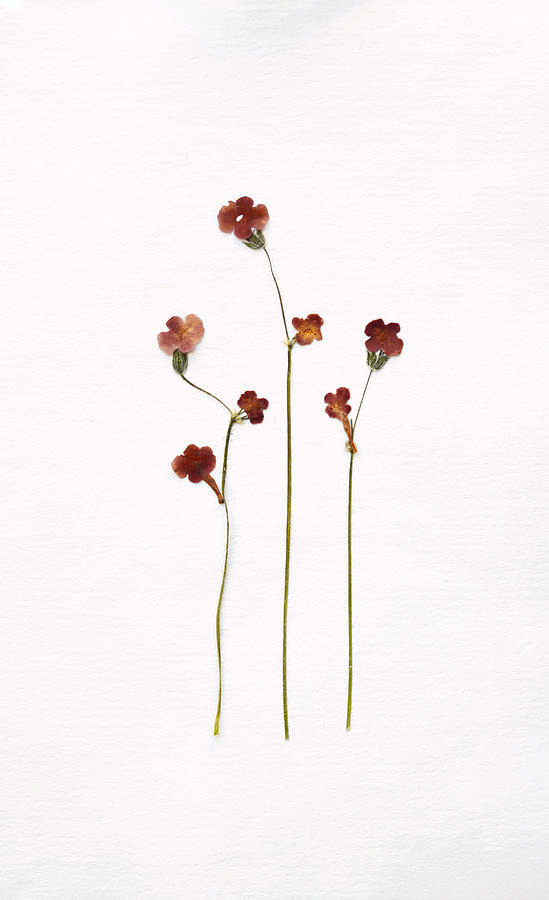Reading Amit Chaudhuri’s On Being Indian amid a Proliferation of Police Barricades
Following the June 2024 elections in India, making Narendra Modi the head of a coalition government, a writer from New Delhi decides to revisit Amit Chaudhuri’s On Being Indian, set in a time of political tumult in India when the right-wing Bharatiya Janata Party returned for a second term in 2019.
A purple kite with yellow polka dots dangles from the branches of a neem tree that grazes the terrace of my home. Its mangled fate has a peculiar heroism—it tells of a battle in the sky with other papery foes, and a bid for glory. It has been a few days since August 15—Independence Day in India—when the free but troubled skies over the capital city, New Delhi, are punctured with kites. Kite-flying, or patangbaazi as it is called in the older parts of the city, is a celebratory tradition with a hazy but charming colonial history. In 1928 freedom fighters protesting against the Simon Commission are believed to have flown kites with the slogan “Go Back Simon” written on them (Sir John Simon was the lead author of a report on India’s constitution created by a commission with no Indian members).
Kites, irrepressible emissaries of liberty, soar over the minarets and temples and spires and glass-and-chrome towers of free India every year on August 15. I find myself staring at the torn kite fluttering from the neem tree. It presents an obvious metaphor—seventy-seven years of independence from British rule since 1947, and India is still a sputtering democracy, its aerodynamics malfunctioning every now and then. The country’s prime minister, Narendra Modi, who made his eleventh consecutive speech from the ramparts of the Red Fort, spoke of the future as conceivable by the government’s “Viksit Bharat 2047” (Developed India 2047) road map. The idealism is admirable, and the goals, which include turning India into a global investment hub, are perhaps achievable.
Kites, irrepressible emissaries of liberty, soar over the minarets and temples and spires and glass-and-chrome towers of free India every year on August 15.
This is the prime minister’s third term in office. His right-wing Bharatiya Janata Party (bjp) formed a coalition government following the general elections this year. On June 4, when the election results were still trickling in, I was driving through the wide, tree-lined avenues of Lutyens’ Delhi. It was afternoon, a time when the summer heat can cause dehydration or, worse, grand upsets, manias, hallucinations. Yellow police barricades with the words delhi police had erupted everywhere and seemed to proliferate—ominous counterpoints to the laburnum trees in full bloom.
I’m not sure when I saw it, but I did, and at first I thought it was a mirage, a trick of the overzealous sun. But there it was—an apparition moving its arms and legs in a crude, unsynchronized fashion. More apparitions appeared outside the bungalows in the area, known as Lutyens’ Bungalow Zone, and joined in. A few of these buildings are offices or IT hubs of national political parties. It took a moment or two for me to realize that the gesticulating specters were party workers, dancing and playing the dholak—a hand drum with two drumheads. They were celebrating what was to be a compromised mandate with demanding coalition partners.
The scene—convulsed dancing in the incandescent heat to the rhythmic beats of a dholak—made me uneasy. Was the celebratory mood premature? Who had won, the people or a consortium of politicians? And what of democracy? Was it as enthusiastic about the results as the dancers, some of whom were wearing garlands of orange and yellow marigold? My disquiet was heightened by an essay I had recently read—Amit Chaudhuri’s On Being Indian (2023), a perceptive and gently humorous meditation on the state of Indian democracy. The essay was first delivered as a talk at Jamia Millia Islamia University in New Delhi in 2020, amidst the protests against the government’s Citizenship Amendment Act (caa), which was unfair to the country’s Muslim community.
The scene—convulsed dancing in the incandescent heat to the rhythmic beats of a dholak—made me uneasy.
The slim book (almost a pamphlet), with its unpretentious blue cover and classic typography, was published under Indian publisher Westland Books’ new imprint, “Literary Activism,” of which Chaudhuri is series editor. The second page revealed a subhead: The Organic Intellectual, Mystical Poetry, and Lineages of Indian Rationalism. The imprint, the compelling dimensions and design of the printed essay, the author’s preoccupations—all of it gestured toward a vital exploration of what it meant to “be Indian.”
I was on my way to a library a little beyond Lutyens’ Bungalow Zone and within an eclectic neighborhood, Gole Market (gole in Hindi means round). The area has a temple, a church, and a gurdwara, for those seeking varieties of solace and redemption. The market has other delights—old tea houses and newer local bakeries that serve flaky patties, almond and pistachio cookies, chole kulche (a popular indigenous snack), and kulfi, a creamy frozen dessert that has fruit variants—traditionally mango but also fashionable fruit like kiwi—in the summer. To get to the library, one must drive past the New Delhi General Post Office or Gole Dak Khana, an octagonal building at a busy roundabout. The colonial relic, with its stained-glass archways and pendulous ceiling fans, was built in 1931 by British architect Robert Tor Russell. It has over the years remained vigilant to, and somewhat disdainful of, the onslaught of modernity.
The variegated neighborhood was like a microcosm of this chaotic country.
The variegated neighborhood was like a microcosm of this chaotic country. The drive had put me in the mood for a contemplative survey of its recent politics, its democratic vision, its activism. On Being Indian, perhaps because of its slender dimensions, was in my handbag. I decided to defer the reading and research I was meant to embark upon in the library and to revisit Chaudhuri’s essay instead.
* * *
On Being Indian is an erudite interrogation, but its erudition isn’t pedantic. The essay has a luminous tint and texture, offering personal anecdotes than merge into cultural analysis and criticism. At the outset, Chaudhuri attempts to understand the meaning of the term “organic intellectual.” He recalls being in a rented flat in Paris between 2018 and 2019, on a fellowship. He discovers the term through his daughter, who is visiting from London, and working on two final-year theses. “As I attempted to grasp its meaning, I became aware of the vagueness of its provenance. It had been invented by Antonio Gramsci, but it’s not as if Gramsci had written a great deal about it.” As the essay progresses, he investigates the varied meanings of the word “intellectual” and the term “public intellectual,” and grapples with how the “organic intellectual” is different from either of them.
This was also a time of political tumult in India; the BJP returned for a second term in 2019. Chaudhuri delineates the new BJP-led National Democratic Alliance’s early measures, in particular, the passing of the Citizenship Amendment Act on December 11, 2019. The law provided refuge and Indian citizenship to persecuted religious minorities from Afghanistan, Bangladesh, and Pakistan but excluded Muslims from these countries. “One might say that the CAA was the first crystallization of xenophobic national policy in a global context in which xenophobia had been on the boil for some time, whether it was the panic over Syrian refugees, Trump’s ‘America First’ policies, or the referendum vote for Brexit, which would be achieved the following year,” he observes.
Anti-CAA protests erupted in several Indian cities. In Delhi, a locality called Shaheen Bagh became the site of a peaceful sit-in. Women, in particular Muslim women, including gnarled but determined grandmothers, stepped out of their homes to read the Constitution of India and recite nazms. The stretch of road upon which they protested turned into a cornucopia of art—posters, photographs, and installations with messages of resistance. A heart-shaped installation, consisting entirely of paper boats inscribed with lines from Urdu poet Faiz Ahmad Faiz’s “Hum Dekhenge” (We shall see) invoked the fragile beauty and, paradoxically, the resilience of the movement.
In Kolkata, Chaudhuri participated in an anti-CAA march from central Kolkata to the Gandhi statue near Chowringhee. He compares the December 2019 march to a previous procession in 2013, which was “thick with the presence of the traditional intellectual type—activists, academics, writers, filmmakers.” The march protesting the CAA was different because “ordinary” people participated in it, although traditional intellectuals were also present. Chaudhuri examines this ordinariness. He notices the onlookers—daily-wage vendors and pedestrians who seem absorbed by the politics unfolding before them: “It was as if they had grasped instinctively, even before the protesters had, that what was happening before them was not political in the usual sense of being party political; a new politics was being made here, albeit under duress.”
On Being Indian is Chaudhuri’s reconnaissance of this new politics; it is his scrutiny of “ordinariness” and its collective charisma; it is a gathering of different registers of meaning. Chaudhuri and his wife also visited the Park Circus protests in Kolkata on January 14, 2020. This was an assembly of predominantly Muslim women, much like the Shaheen Bagh protests in Delhi. The area erupted into posters of Gandhi, B. R. Ambedkar, Subhas Chandra Bose. The national flag—the Indian tricolor—proliferated at the site of the movement. Chaudhuri discusses this widespread reclaiming of national symbols by ordinary people—women in burqas who make speeches or cheer the speechmakers or distribute tea and biscuits to other peaceful agitators. He also digresses to dwell on India’s religious inheritance, the songs and poems of its philosophers and thinkers, and to suggest that this legacy has invigorated the protests against xenophobia.
On Being Indian draws from the news of the day, the songs of fifteenth-century mystic poet Kabir, Matthew Arnold’s 1880 essay “The Study of Poetry,” and ideas from the Enlightenment to examine intellectualism, secularism, religiosity, logic, and activism. Chaudhuri offers a compelling example of Kabir’s deployment of logic in his poems to argue, with discreet vehemence, that “rationality, in India, is religious thought’s means of refuting hegemony, and hegemony, until three hundred years ago, in India as elsewhere, was religion.” Here’s a verse:
If going naked
Brought liberation,
The deer of the forest
Would attain it first.
The third term of the Modi government, albeit a coalition, has commenced. On August 9, a postgraduate trainee was raped and murdered at the R. G. Kar Medical College and Hospital in Kolkata. Protests erupted in several Indian cities. Women, and in particular doctors, stepped out of their homes, yet again, to remonstrate with the government. Candlelight rallies with handwritten slogans, urging an outraged people to “reclaim the night,” spread their impassioned intent on street corners.
Even as I write this, there is fresh news about the murdered intern’s autopsy reports. In the days to come, new slogans demanding justice for the dead, and safety for women navigating treacherous streets and workplaces, will emerge. Iconography, unique to these protests or inherited from previous ones, will articulate a collective anger.
The torn kite hangs with remarkable tenacity from a branch. On Being Indian lies on my desk, a vigorous interrogation, foreshadowing surrealistic days.







